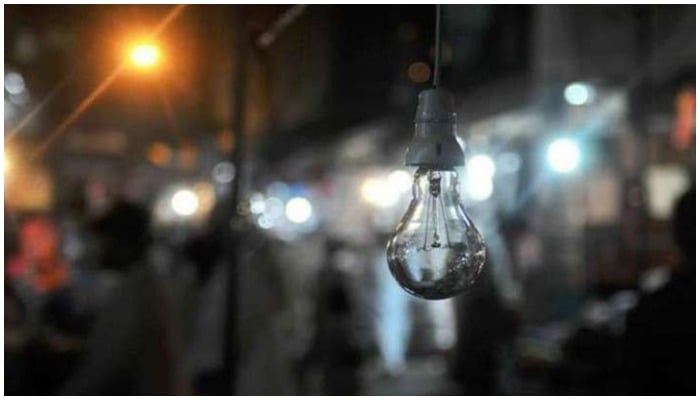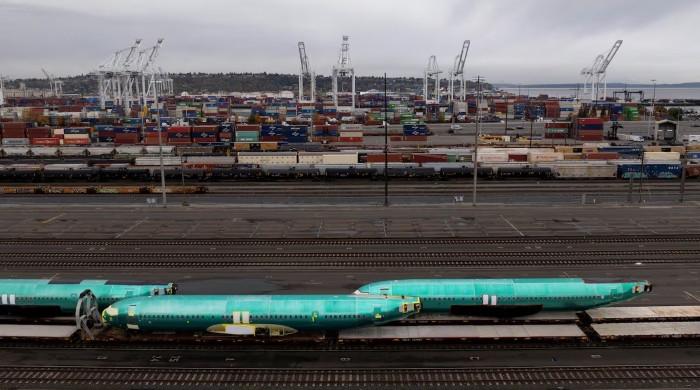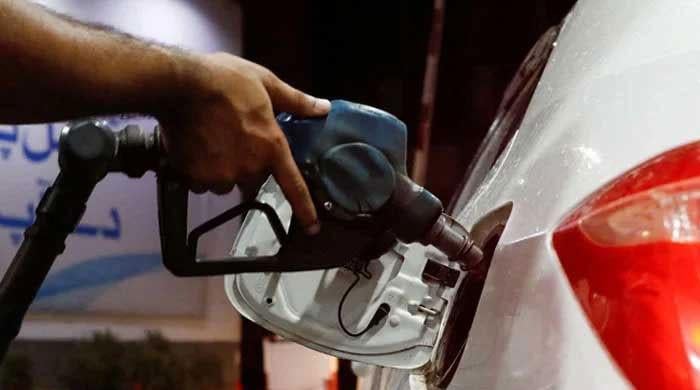Pakistan's power crisis continues to get worse
Pakistan faces up to 7,468MW of power shortfall resulting in up to 10-18 hours of load-shedding nationwide
April 26, 2022

- Country faces severe energy crisis amid hot weather as power shortfall reaches 7,468 MW.
- Shortfall resulting in up to 10-18 hours of load-shedding nationwide
- Total power generation currently stands at 18,031 MW while demand is around 25,500 MW.
LAHORE: Pakistan is reeling under a worse energy crisis as the power shortfall reaches 7,468 MW, resulting in up to 10-18 hours of load-shedding nationwide, The News reported.
Currently, the total power generation stands at 18,031 MW, while the demand hovers around 25,500 MW. Shortage of fuel and technical reasons for shortfall in electricity generation are being called the main reasons for the shutdown of power plants.
As many as 3,674 MW of electricity is being produced from hydro-power, while government thermal power plants are generating only 786 MW. As much as 9,526 MW of electricity is being generated by the private power producers.
Sources say that wind power plants were generating 487 MW, solar power plants were generating 104MW, bio gas plants 141 MW and atomic power plants wer producing 3,312 MW of electricity currently.
Also read: PM Shehbaz orders to get rid of power outages by next month
Rehana Jadoon, a resident of Rawalpindi, decried unannounced load-shedding in the city.
"They did not think of this in the holy month," a resident of Gujranwala Zubair Ahmed said.
“I don't understand the situation. There was no load-shedding or shortage of diesel 15 days ago. Does anyone know where did it [electricity and diesel] go now,” he asked.
Meanwhile a Karachiite, Muhammad Hanif Khan said due to lesser supply from the national grid, "load management" was carried out in his area. Hence, power outages of at least four hours are being witnessed in his locality.
According to Power Division officials, people in urban centres are suffering for up to 10 hours a day, and in rural areas up to 18 hours a day outages in the country. The power cuts made people’s lives miserable at the time of iftar and sehri during the month of Ramadan.
Meanwhile, blame-game continued over the lingering energy crisis on Monday as Prime Minister Shehbaz Sharif said that Nawaz Sharif's government ended the worst load-shedding in five years. He blamed the previous Imran Khan government’s energy policies for the severe load-shedding in the country.
In a tweet, he said that the PTI government failed to address the problem of electricity generation in its tenure.
“The PTI government neither purchased fuel on time nor repaired power plants, hence the current load-shedding,” he added.
He alleged that expensive power generation by the PTI government through inefficient plants was costing the nation Rs100 billion per month, adding that his government was making efforts to fix the load-shedding problem.
However, former energy minister Hammad Azhar rejected PM Shehbaz Sharif’s claims. He said the country was facing load-shedding and unavailability of diesel due to the incompetence of the imported government.
He said that power generation capacity exists, but the incumbent government is unable to utilise it.
"The biggest stock of diesel is available but stockpiling was started by creating ambiguity in price," the ex-minister said, adding that the current government caused an economic crisis by creating a situation of extreme uncertainty.
"Due to untimely management, a load-shedding crisis was created. This country is doing well only on the government’s blue-eyed private news channels otherwise things are very bad."
Azhar went on to say that there were only five power plants under repair, and most of them were in the private sector.
“Fuel shortage was caused because of default of two PML-N LNG contracts, and prompt diversions on the gas system were not made in last two weeks,” he claimed.
“This is a classic mismanagement issue that could easily have been avoided."
He said that the power crisis in the country had become serious again and the shortfall reached 7,500 MW with an increase of two-and-a half times in just one day.
Azhar said electricity load-shedding had started and there were reports of diesel shortage in rural areas.
"The imported government cannot handle the matters at all," he said.
On top of that, the imported government has promised the International Monetary Fund (IMF) that it will increase the price of petrol, diesel and electricity. This will be a severe blow to the economy and will have a negative impact on the growth rate.
Abid Sher Ali, former minister of power and PML-N leader observed that Nawaz Sharif's government had generated 12,000 extra electricity. Despite this, the PTI government, with its mismanagement and incompetence, had re-created the problem. Today there is a shortfall of more than 5,000 MW due to the non-purchase of oil and gas, he concluded.











